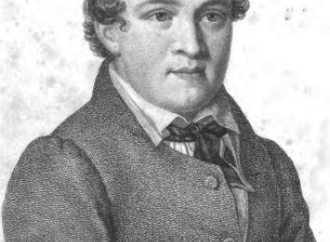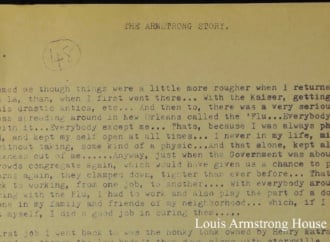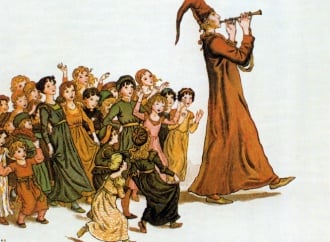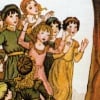Only one thing can be predicted for March 12 and 13: it will be an anxiety- filled two days for the superstitious and the credulous. A full moon will appear in the sky Thursday, March 12, calling to mind tales of "moon madness". And on Friday, friggatriskaidekaphobes, those afflicted souls who possess an overwhelming fear of Friday the thirteenth, will surely step out the door in trepidation, looking for cracks in the sidewalk, avoiding ladders and black cats, and being careful not to break any mirrors.
Separate polls taken of students at major universities and of health professionals nationwide reveal that approximately half of those surveyed believe some people behave strangely when the moon is full. Fear of the full moon traces back centuries to tales of werewolves, witches, supernatural happenings, and maritime misfortune. Indeed, the word "lunatic" derives from the supposed lunar influence.
As has been the case with many paranormal phenomena, pseudoscience has attempted to verify the existence of moon madness. In 1978, psychiatrist Arnold Lieber published the best-selling book The Lunar Effect which claimed that the moon has the power to influence human "biological tides" causing emotional, physical and mental disruption. Lieber used his theory to explain findings that purportedly showed that the incidence of homicides in Miami and Cleveland were higher near the times of both the new and full moon.
Yet follow-up studies, several published in SKEPTICAL INQUIRER magazine, have failed to support a correlation between moon phases and homicides. Studies also counter the existence of a correlation between stages of the moon and the number of such commonly cited other disturbances as suicides, births, crisis calls to police stations, disasters, hockey fights, or psychiatric admissions.
With statistical evidence acquitting the moon of murder and mayhem, this week the superstitious are still left to contend with the "dark" history surrounding Friday the Thirteenth. As any reputable scientist or mathematician will tell you, "luck" does not exist. Good fortune is randomly distributed and not dependent on the day. The superstitious, however, will cite a long history of misfortune associated with the number thirteen.
Judas Iscariot was the "thirteenth" apostle, the thirteenth tribe of Israel was the only tribe left without land, and the ill-fated Apollo 13 space mission was launched at 1313 hours (central time), from pad 39 ( the 3rd multiple of 13) and had to be aborted on April 13, 1970. Practitioners of witchcraft will point out that the number thirteen equals the number of days in the year divided by twenty-eight, the number of days in a woman's menstrual cycle.
Friday has an equally colorful past. According to Biblical lore, Eve gave the apple to Adam on Friday, the great flood began on a Friday, the Temple of Solomon was destroyed on a Friday, execution day was Friday in Rome, and Good Friday exists because it is the reported day of Jesus' crucifixion.
But for all the infamy and credence given to bad luck on Friday the Thirteenth, there are many less-publicized examples of good fortune. In pagan times, Friday was the day of the love goddess, and today, fittingly enough, Friday is the end of the work week. Many actors insist on signing contracts only on Friday because it brings good luck. Novelist Charles Dickens reportedly began the writing of all his books on a Friday, the day of his birth.
At the birth of our nation, thirteen colonies formed the Union, a baker's dozen is considered a fortunate bargain, and, if you are Jewish, age thirteen is the time for a bar or bat mitzvah. For some Christians, thirteen could be considered sacred, since it equals the Ten Commandments plus the Trinity. And, as most sports fans know, Dan Marino, perhaps the greatest of NFL quarterbacks, wears the number thirteen.
It might be easy to laugh at such superstitious foolishness, but this same kind of magical thinking operates to support beliefs that can be harmful. It is estimated that the thirteenth of the month costs America a billion dollars a year through train and plane reservation cancellation, absenteeism, and reduced commerce. One can see why philosopher Edmund Burke proclaimed superstition the "religion of feeble minds."



























